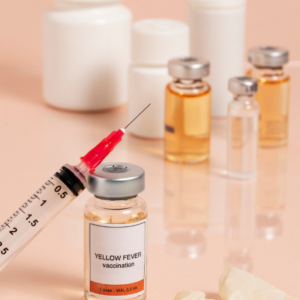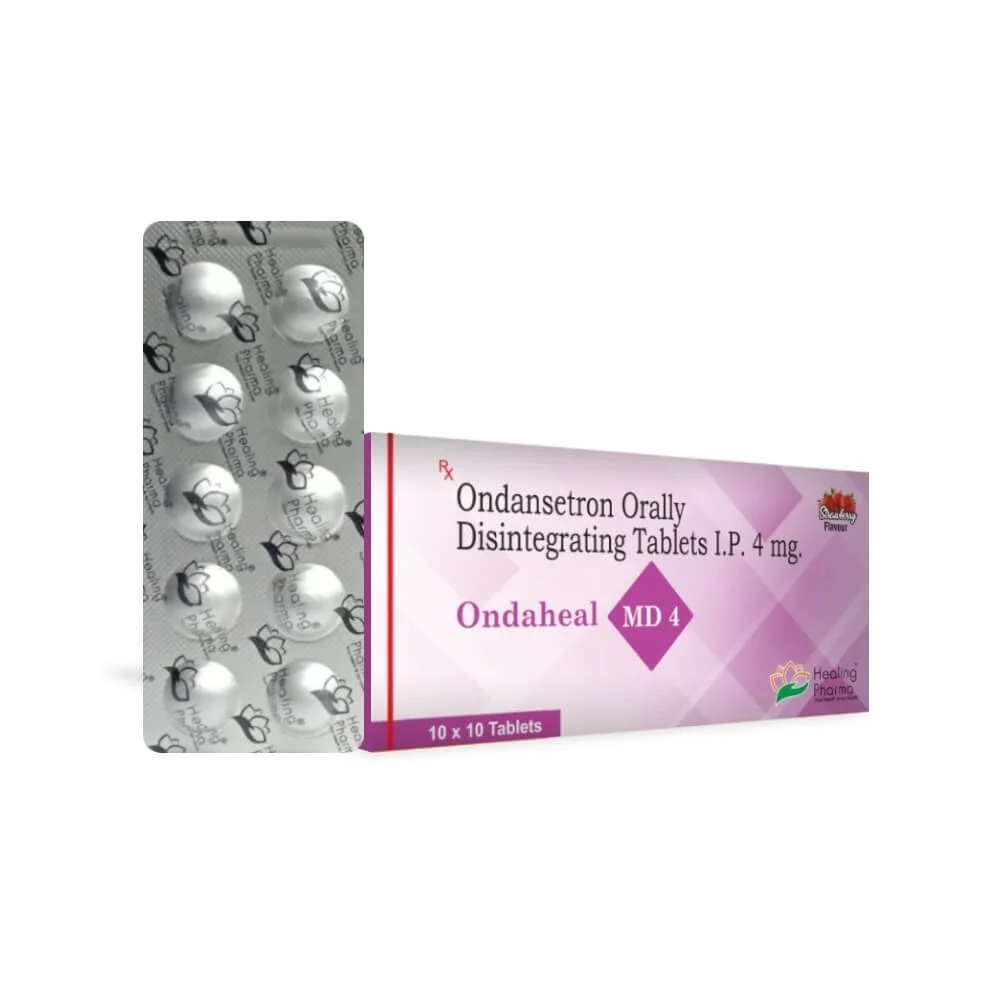Ondaheal MD 4mg
| Package | Per tablet | Savings | Price |
|---|---|---|---|
| 180 tablets | $0.15 | $9 | $36 $27 |
| 150 tablets | $0.15 | $7 | $30 $23 |
| 120 tablets | $0.16 | $5 | $24 $19 |
| 90 tablets | $0.17 | $3 | $18 $15 |
| 60 tablets | $0.18 | $1 | $12 $11 |
| 30 tablets | $0.20 | – | $6 |
What is this medicine?
ONDAHEAL MD 4 mg contains Ondansetron, which is a 5-HT3 receptor antagonist. This medicine is used to prevent and treat nausea and vomiting caused by:
-
Chemotherapy or radiotherapy for cancer
-
Surgery (post-operative nausea and vomiting)
It works by blocking serotonin, a natural chemical in the body that can trigger nausea and vomiting.
What should I tell my health care provider before I take this medicine?
They need to know if you have any of these conditions:
-
Heart disease, irregular heartbeat, or a condition called long QT syndrome
-
Liver disease
-
Electrolyte imbalances (e.g., low potassium or magnesium levels)
-
Stomach or bowel blockage
-
History of seizures
-
Allergic reaction to Ondansetron or other 5-HT3 antagonists like granisetron or dolasetron
-
Phenylketonuria (PKU) (some orally disintegrating tablets may contain aspartame)
-
If you are pregnant or trying to get pregnant
-
If you are breast-feeding
How should I use this medicine?
Take this medicine by mouth. Place the mouth-dissolving tablet (MD) on your tongue and allow it to dissolve. Swallow after it melts — do not chew or crush it. You may take it with or without food, as directed by your doctor.
Take your doses at regular intervals. Do not take more than directed. Do not stop using the medicine unless advised by your doctor.
Overdosage: If you think you have taken too much of this medicine, contact a poison control center or emergency room right away.
What if I miss a dose?
If you miss a dose, take it as soon as you remember. If it is almost time for your next dose, take only that dose. Do not take double or extra doses.
What may interact with this medicine?
-
Apomorphine (serious interaction – contraindicated)
-
Medicines for irregular heart rhythm (e.g., amiodarone, sotalol, quinidine)
-
Tramadol
-
SSRIs or SNRIs (e.g., fluoxetine, sertraline, venlafaxine)
-
Phenytoin, carbamazepine, or rifampin (may reduce effectiveness)
-
Other medicines that affect serotonin levels (risk of serotonin syndrome)
This list may not describe all possible interactions. Give your health care provider a complete list of all medicines, herbs, non-prescription drugs, or dietary supplements you take. Also mention if you smoke, drink alcohol, or use recreational drugs.
What should I watch for while using this medicine?
-
Let your doctor know if your nausea or vomiting continues after treatment
-
Watch for symptoms like irregular heartbeat, dizziness, or fainting
-
This medicine may cause drowsiness or dizziness; avoid driving or using machinery until you know how it affects you
-
If you have liver disease, your doctor may need to adjust the dose
-
Inform your doctor if you are pregnant, planning pregnancy, or breastfeeding
-
Avoid alcohol, as it may worsen dizziness
-
Don’t start any new medication (especially anti-nausea drugs) without checking with your doctor
What side effects may I notice from this medicine?
Side effects to report to your doctor right away:
-
Allergic reactions (rash, itching, hives, swelling of face/lips/tongue/throat)
-
Chest pain or abnormal heart rhythm
-
Fainting, dizziness, or light-headedness
-
Seizures
-
Difficulty breathing or swallowing
Side effects that usually do not require medical attention (report if persistent or bothersome):
-
Headache
-
Constipation or diarrhea
-
Fatigue or sleepiness
-
Flushing (warmth or redness in face/neck)
-
Dry mouth
This list may not include all possible side effects.
Where should I keep my medicine?
-
Keep out of reach of children
-
Store at room temperature between 20 and 25°C (68 and 77°F)
-
Protect from moisture and light
-
Do not use after the expiration date
-
Dispose of unused medicine safely
























